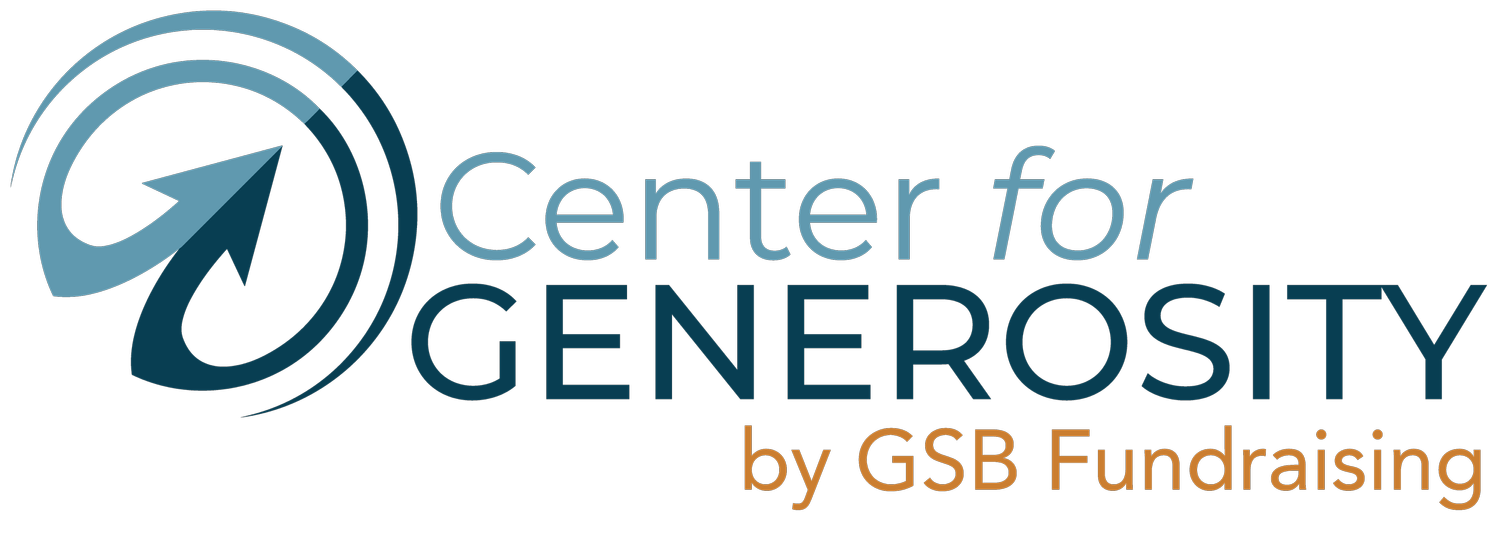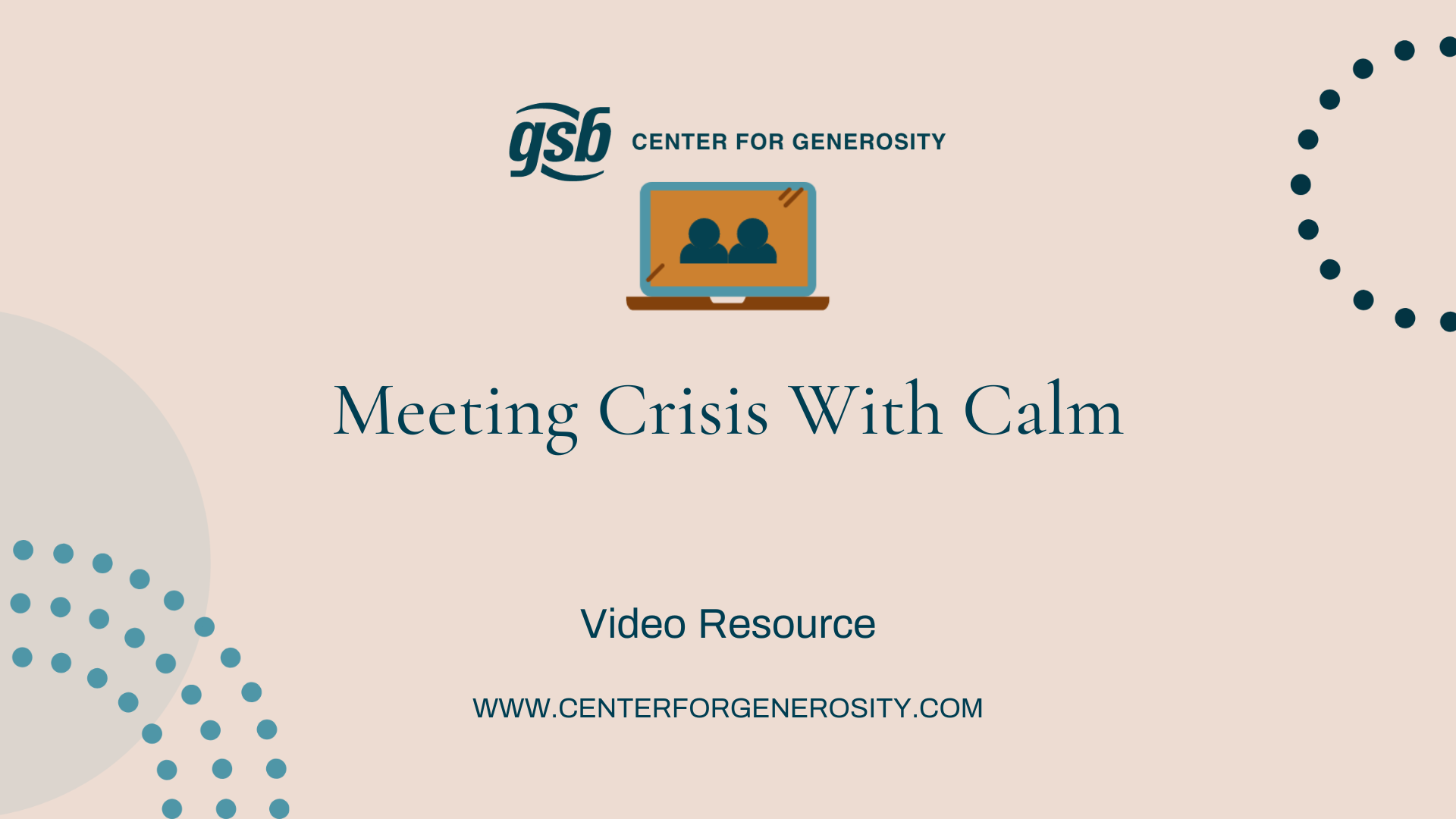Resource Library
Search by Topic
- 10 Steps of Fundraising
- Acknowledgements
- Annual Fund
- Appeal Letters
- Board Governance
- Capital Campaigns
- Case Development
- Challenge Gifts
- Congregation Governance
- Congregations
- Crisis Management
- Database
- Development Councils
- Development Plan
- Donor Relations
- Executive Leadership
- Giving Trends
- Gratitude
- Human Resources
- Lapsed Donors
- Major Gifts
- Marketing
- Matching Gifts
- Mission
- Non-Profits
- Planned Giving
- Public Relations
- Recurring Giving
- Samples
- Self-Care
- Special Appeals
- Special Events
- Stewardship
- Stewardship Appeal
- Storytelling
- Strategic Planning
- The Ask
- Theology
- Tributes
- Volunteers
- Wealth Screen
- Websites
- Youth Fundraising
Improving Board Engagement in 5 Easy Steps
When equipped effectively, Board members can be an organization's most enthusiastic partners. Your current approach may be underutilizing their potential. Learn how to position your board members and the organization for greater impact.
Developing Your Annual Fund
Strong Annual Funds aren't based on one-time (i.e., "annual") appeals. Instead, a healthy annual fund is a year-long (i.e., "annual") series of communications which inform, inspire, ask, and thank funding partners. Move beyond the one-and-done approach with a framework of Who, When, Why, and How you'll engage supporters to ensure your fundraising efforts are effective.
Five Best Practices for Congregation Councils
Faithful leaders are clear, calm, and connected. In this video learn about five practices which help leaders hone these skills. Doing this will put Congregation Councils on the path to thoughtful decisions and effective leadership.
Executive Leadership
Explore the role of the organization's lead executive in raising funds for your mission.
Wealth Screening & Database
Relationships are key to fundraising, but how can you know everyone in your database? A wealth screen is a tool that provides far more than just capacity information. At it's core a wealth screen allows those responsible for development to deepen their relationships with donors.
10 Steps--video 1 of 3
Sooner or later, if your organization or church is to reach its potential, you must follow the first five steps. New organizations have gotten off to a healthy start by heeding the guidance offered here. Established organizations have received new life by revisiting these first steps to success.
Storytelling Overview
Mitzie Schafer gives an overview of how telling stories will bring your donors more engagement with your ministry. Telling stories in this way reminds everyone of why you do the mission that you do. In addition to learning to tell stories this way, you will also learn how and where to share them.
Meeting Crisis With Calm
A recording from Anne's roundtable discussion on having a crisis plan. Planning for a crisis allows you to navigate the crisis in such a way that you keep the organization moving forward and thriving, even during a difficult time. Unfortunately, no matter how well lead, structured and intended, no organization is immune from experiencing a crisis. There is no crystal ball for anticipating what the crisis will be and when it will occur. But strong organizations prepare themselves to meet crisis with calm by adapting and living into policies, protocols and practices designed around positioning their organization to address and manage through even the worst of situations. Your mission and impact is too important not to be prepared for the unexpected! Let us help you write your own narrative as you navigate situations that threaten to disrupt, damage and if not handled well, even destroy your organization.
Find Your Best Planned Giving Prospects
Your best planned giving prospects have similar traits. In this 15 minute presentation Jim Schade gives you the roadmap of who they are and how to find them.
Telling Generosity Stories
In addition to impact stories, we also need to tell generosity stories. Telling them leads to a culture of abundance and helps donors know they aren't alone in supporting your mission. These stories also help to teach generosity.
What is Donor Retention
How do we improve donor retention, particularly from first gift to their second year with the organization. This is far cheaper than finding a new donor and the first conversion is the most important. Historically, retention rates are 45% on average. This means the average organization loses over half of their donors each year.
Challenge Gifts, The what, why, and how
Utilizing Challenge Gifts can stimulate giving and get you noticed. Many times these gifts are used to stimulate gifts among under-performing populations or to assure everyone that their gift and participation is important. Donors love to give them because it assures that they won't be the only one being generous.
Introduction to Storytelling for Engagement
Mitzie Schafer gives an overview of how telling stories sparks donor engagement with your organization. A critical first step is to evaluate your current communications to determine how much of what you are sharing is "informational" and how much is "inspirational." How much of what you are sharing is an "ask" and how much is connecting the donor to the impact their generosity provides? During this session, we explore where to use stories, what they should include, and how to evaluate your current practices.
The Value of Volunteers in Fundraising
No matter the size or complexity of the organization, volunteers are critical in fundraising efforts. You will network your way to new prospects and have different relationships when we can move to peer to peer fundraising.
Relationship Based Fundraising
Developing relationships with your donors will help you grow their linkage to the organization. This isn't just for capital campaigns, but is relevant to all aspects of developing the donors passion for your organization.
Recurring Giving
Developing sustainable money that can be planned for can transform your organization. You can also encourage younger donors to be more generous with a robust recurring giving program.
Raising Money from Churches
Partnering with churches can greatly increase your annual fund and help you acquire new donors if you position yourself correctly. Also, they will tell your story so that donors, participants, and potential friends start to learn about your impact. Turn congregations into major donors for your annual fund and even for campaign gifts.
Raising Money from Donor Advised Funds
Know what they are, how to identify them, why donors use them and how to make sure you are maximizing gifts from them.




















